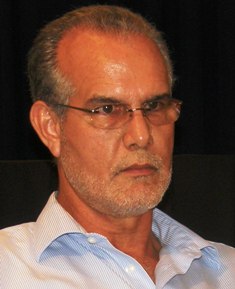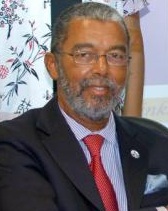Archive for March 14th, 2010

Civil servants salaries still in question says Ebanks
 (CNS): The deputy governor has said that civil service salaries remain under urgent consideration, despite the fact that government is not cutting pay for March. Confirming the contents of a memo circulated from his office by Franz Manderson, which contradicted an earlier memo circulated by the financial secretary Ken Jefferson, Donovan Ebanks has said that adjustments are still to be expected and may be cut by April. On 4 March Jefferson circulated a memo stating that there would be a pension freeze for the public sector, civil servants would begin paying 50% of their health care benefits and that salaries would be cut from March. On 10 March a memo stating that neither salaries nor benefits would be cut was circulated by Manderson.
(CNS): The deputy governor has said that civil service salaries remain under urgent consideration, despite the fact that government is not cutting pay for March. Confirming the contents of a memo circulated from his office by Franz Manderson, which contradicted an earlier memo circulated by the financial secretary Ken Jefferson, Donovan Ebanks has said that adjustments are still to be expected and may be cut by April. On 4 March Jefferson circulated a memo stating that there would be a pension freeze for the public sector, civil servants would begin paying 50% of their health care benefits and that salaries would be cut from March. On 10 March a memo stating that neither salaries nor benefits would be cut was circulated by Manderson.
The second memo also asked civil servants to submit their ideas for the 15% cuts in operational budget by Monday. Following a meeting with the Civil Service Association’s membership, the president, James Watler, had said that while the civil service was a reasonable group of professional people, they were being asked to “bleed three ways” and was hoping to present alternatives to the government over what is a pressing need to cut benefits following the news from the premier that the country is facing a budget deficit of over $62 million unless dramatic cuts to operational expenses can be made before 30 June.
The premier is expected to return this weekend from Londo, where he has gone to discuss the Miller-Shaw report and the budget crisis with the FCO. McKeeva Bush has called a press conference for Monday, when he is expected to report back on those talks as well as reveal the content and recommendations made by the Miller commission.

University shaping tomorrow’s Caymanians
 (CNS): The president of the university College of the Cayman Islands has said the institution is creating a new kind of Caymanian that will be part of the global village with a different outlook. Roy Bodden said that Cayman’s university is important to the community in many ways, not least for the part it will play in shaping a new generation of Caymanians that will have a different view to that held in the past of Cayman’s place in the world. Speaking to CNS at the close of the college’s first regional academic conference, he said he was excited about what was happening at UCCI and what his students would take away from what is only the beginning of the awakening of Cayman’s academia.
(CNS): The president of the university College of the Cayman Islands has said the institution is creating a new kind of Caymanian that will be part of the global village with a different outlook. Roy Bodden said that Cayman’s university is important to the community in many ways, not least for the part it will play in shaping a new generation of Caymanians that will have a different view to that held in the past of Cayman’s place in the world. Speaking to CNS at the close of the college’s first regional academic conference, he said he was excited about what was happening at UCCI and what his students would take away from what is only the beginning of the awakening of Cayman’s academia.
The conference, which examined the complexities of Caribbean identity, brought together experts in literature, the arts, social studies, history, politics and sciences to examine the culture of the modern Caribbean. The event was opened on Monday evening when a number of local dignitaries offered their thoughts on the two-day conference, including local attorney Steve McField, who gave a fervent tribute to his mentor and friend, the late Prof Rex Nettleford, before Professor Brian Meeks from the University of the West Indies gave a riveting and persuasive key note presentation that turned out to be incredibly poignant.
Meeks examined where the major states of the Caribbean were as they approached fifty years of independence and he paid particular attention to the incredible surge in violence in the region, in particular in Trinidad and his native Jamaica. As he spoke intelligently on the rise of crass individualism and the acquisition of wealth over the collective liberalism and ideals of post independence fuelling the violence, in West Bay, some ten miles away, Cayman’s own gun violence problem was erupting again.
While Meeks delivered his address, ambulances and police patrol cars flew to the scenes of crime where a 29-year-old man had become Cayman’s latest murder victim and a 16-year-old boy the latest gunshot victim.
Meeks’ address set the tone for a challenging and truly academic gathering that probed at the complexities of the Caribbean region, of which Cayman is geographically, if not always enthusiastically, a part.
The president said he was disappointed that not as many people from the community joined in the seminars, as he said the issues discussed were of importance to everyone who has made the Cayman Islands their home, and especially in times of change. He praised the college for its high standards and said it would be pushing at the boundaries when it came to social thought and commentary, which was why it was important for the wider community to engage with the university as well. Cayman and UCCI were both changing, Bodden stated, and noted the fact that he, who was once an outcast, was now the president of the university was itself an illustration of that change.
Bodden said the UCCI was moving into its “post Syed” period, with financial challenges as well as the legacy of the former president, who has been accused of fraud and has since left the island. The president was optimistic, however, that the college has much to offer and that the recent conference was just the first step towards a bigger future.